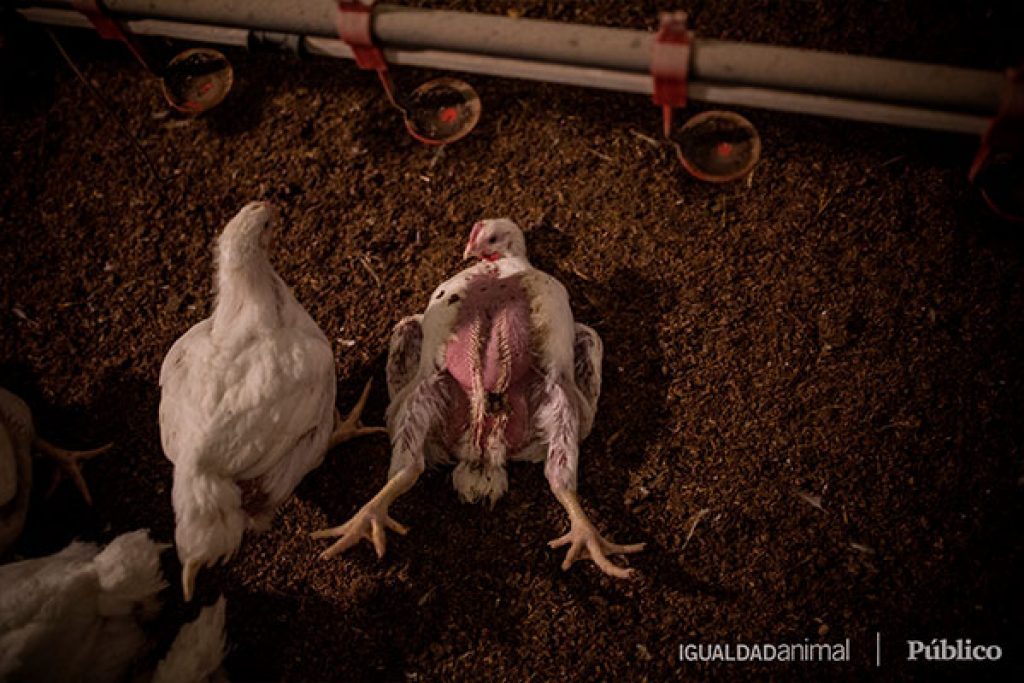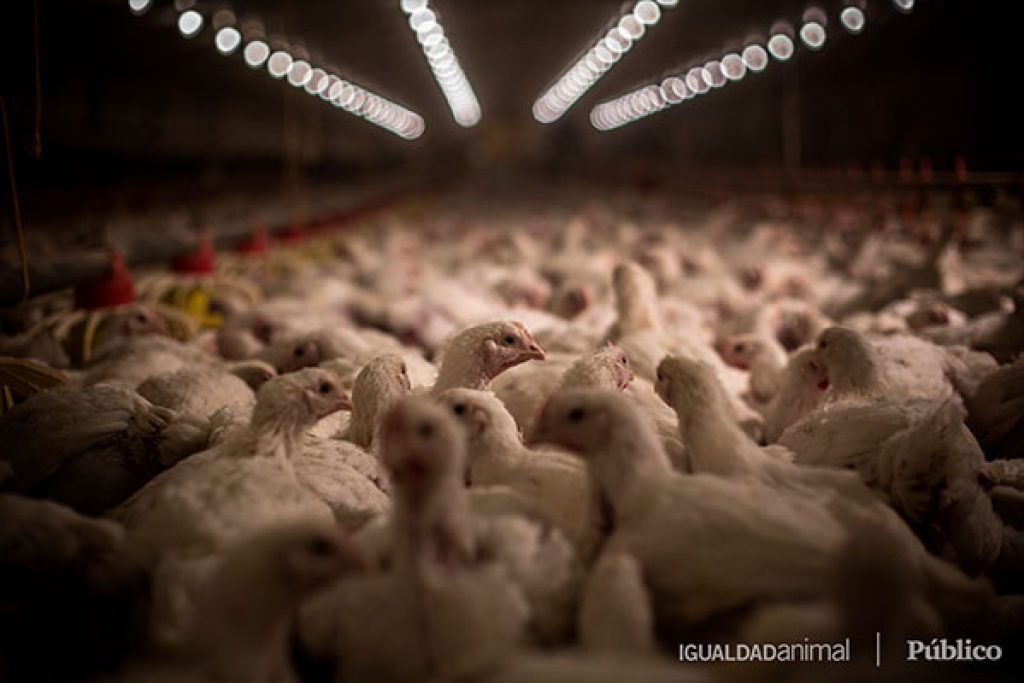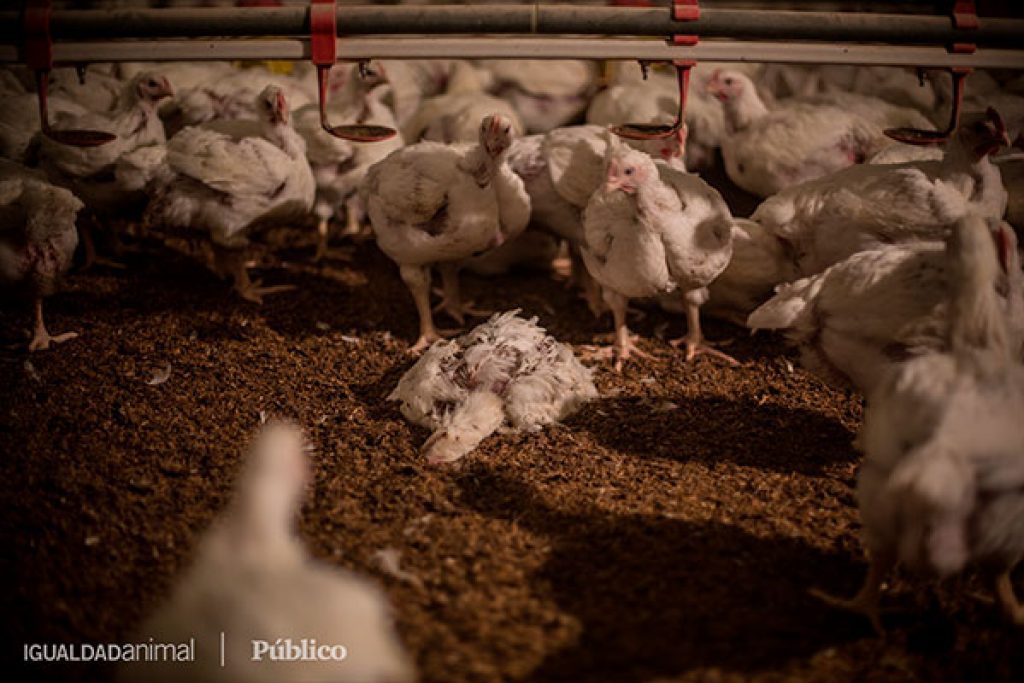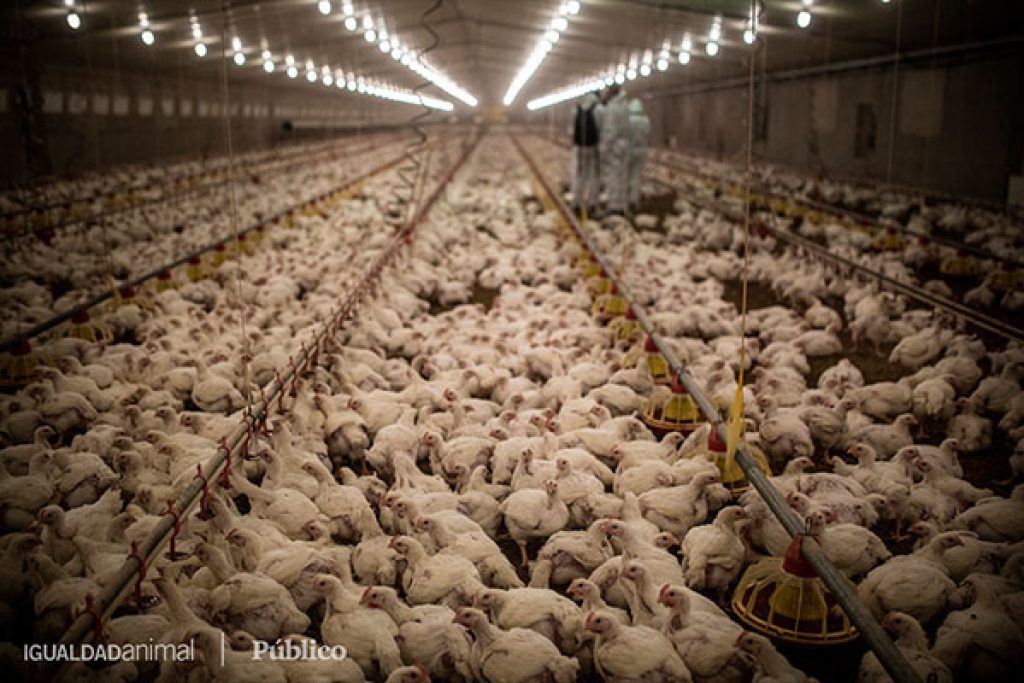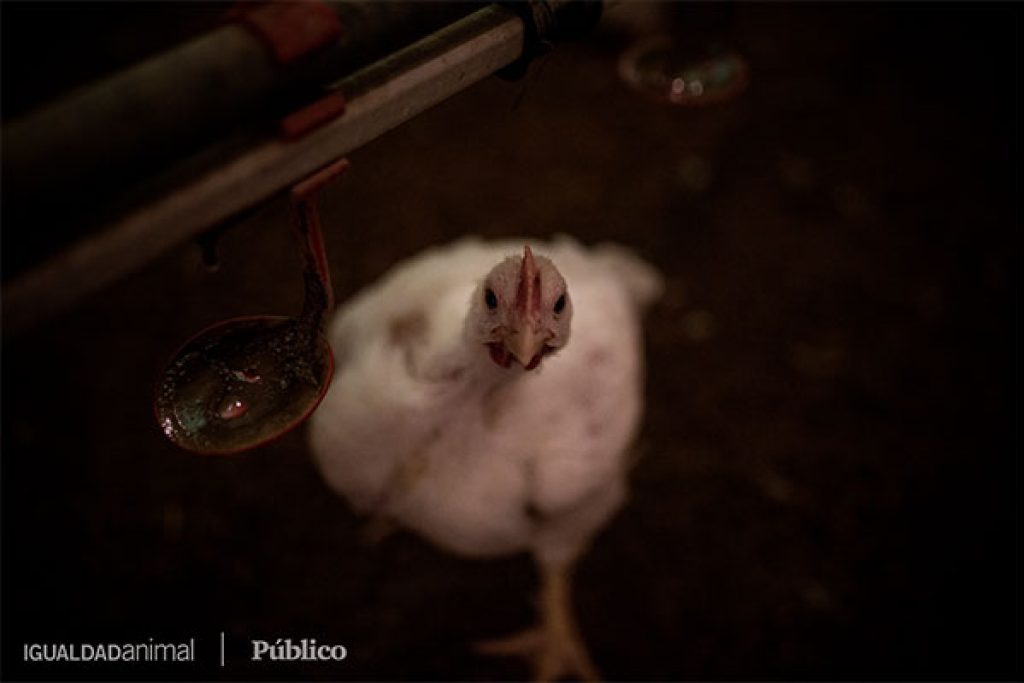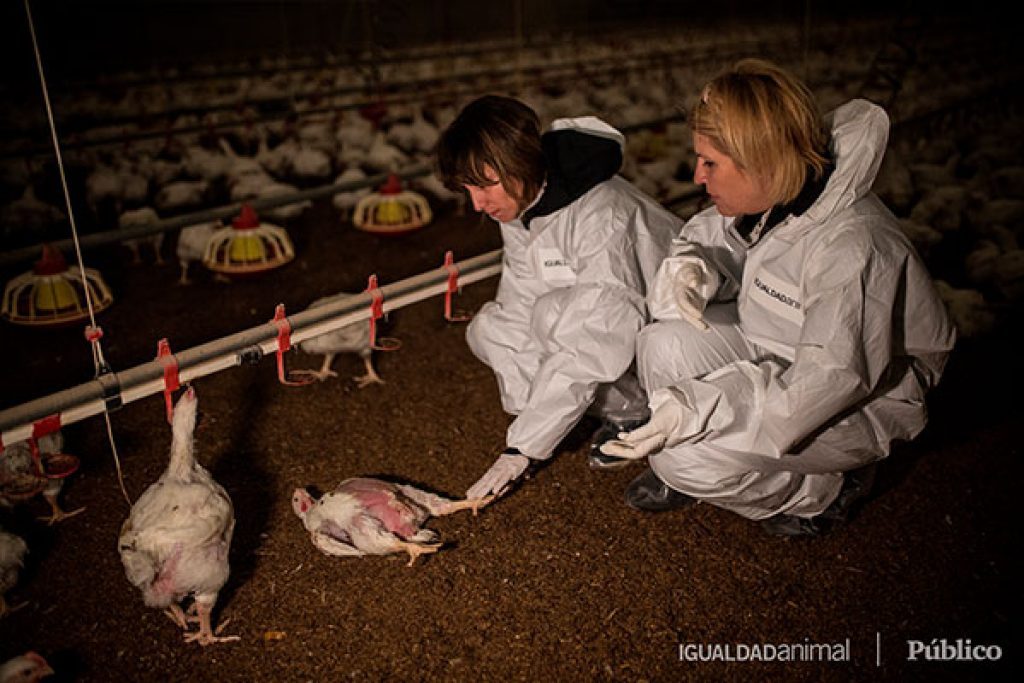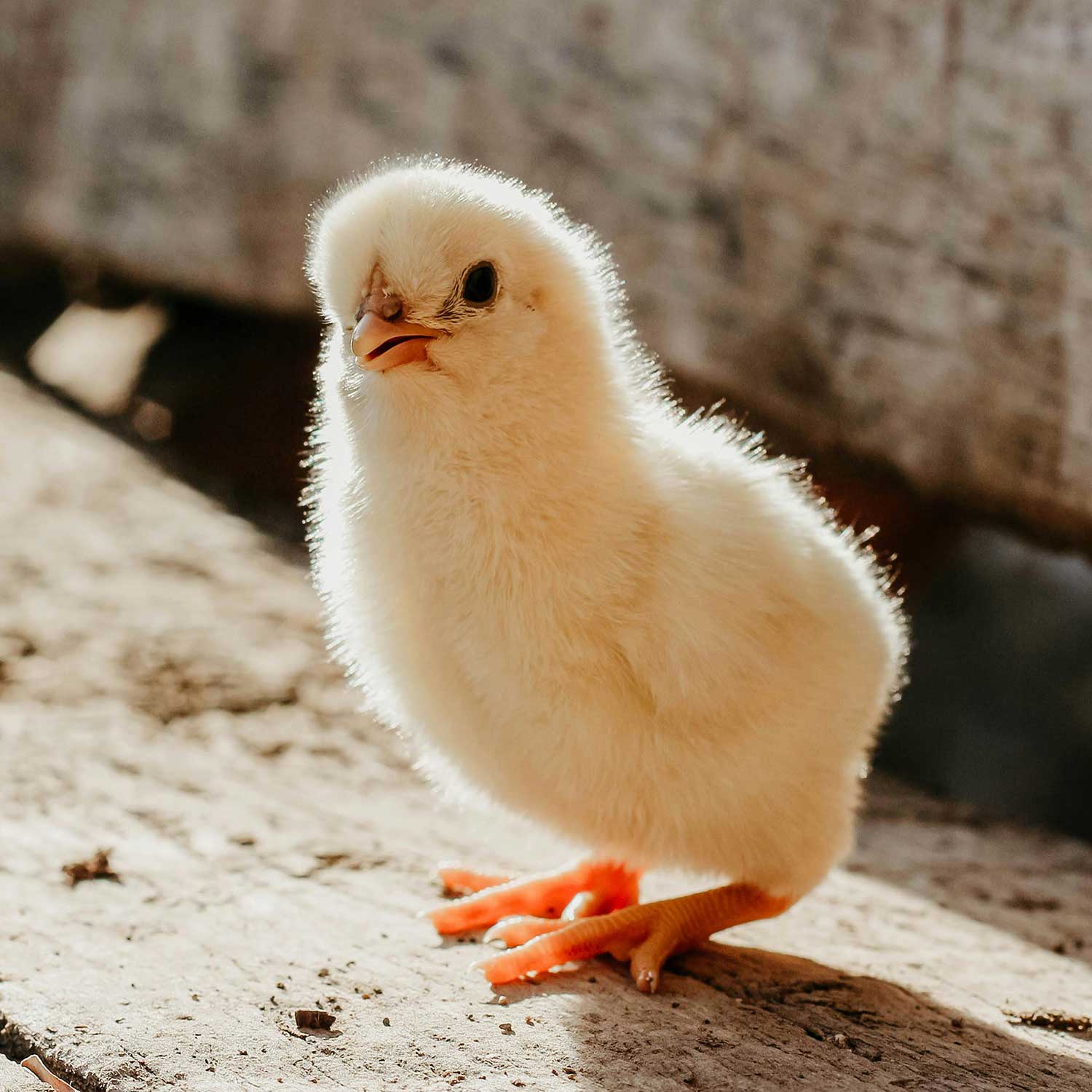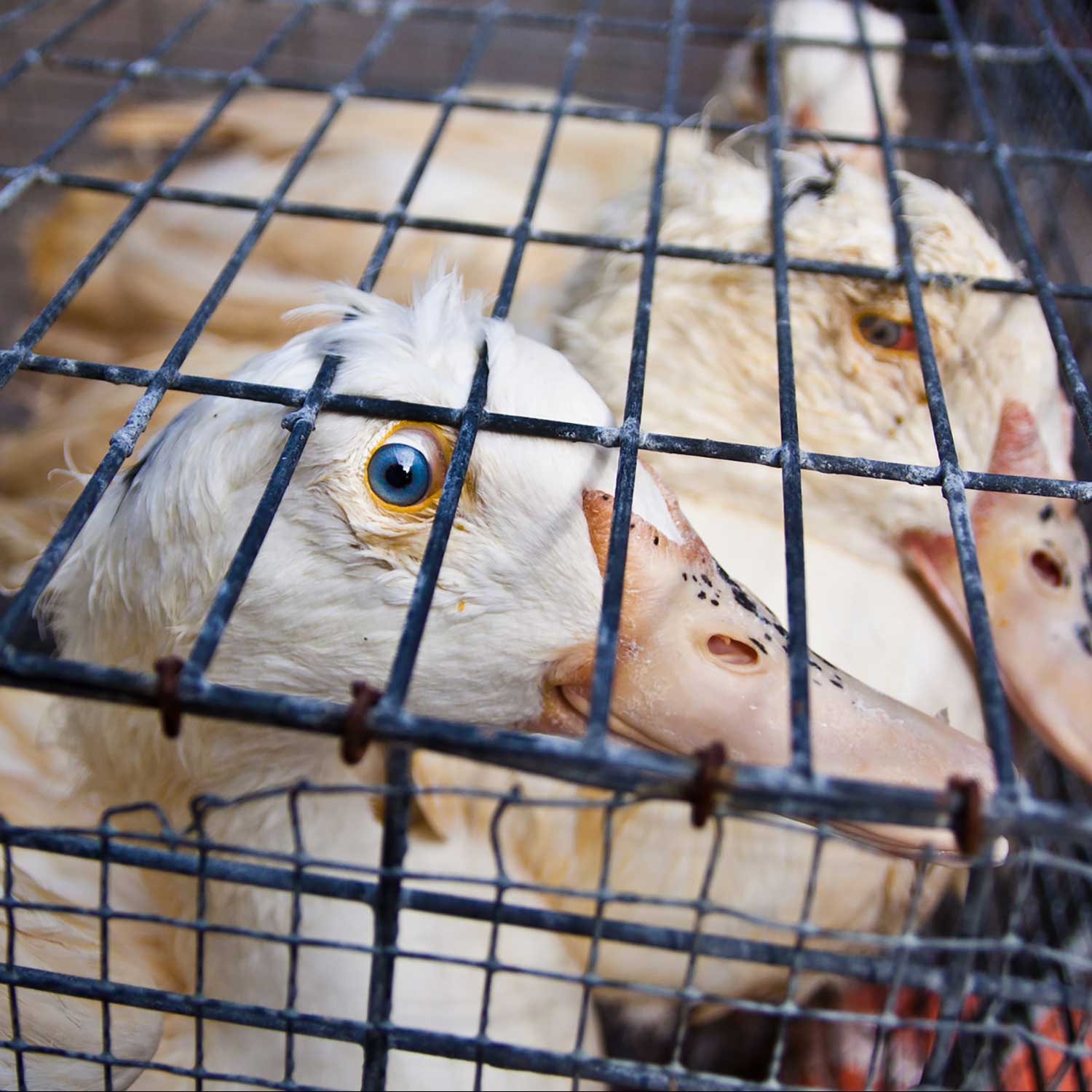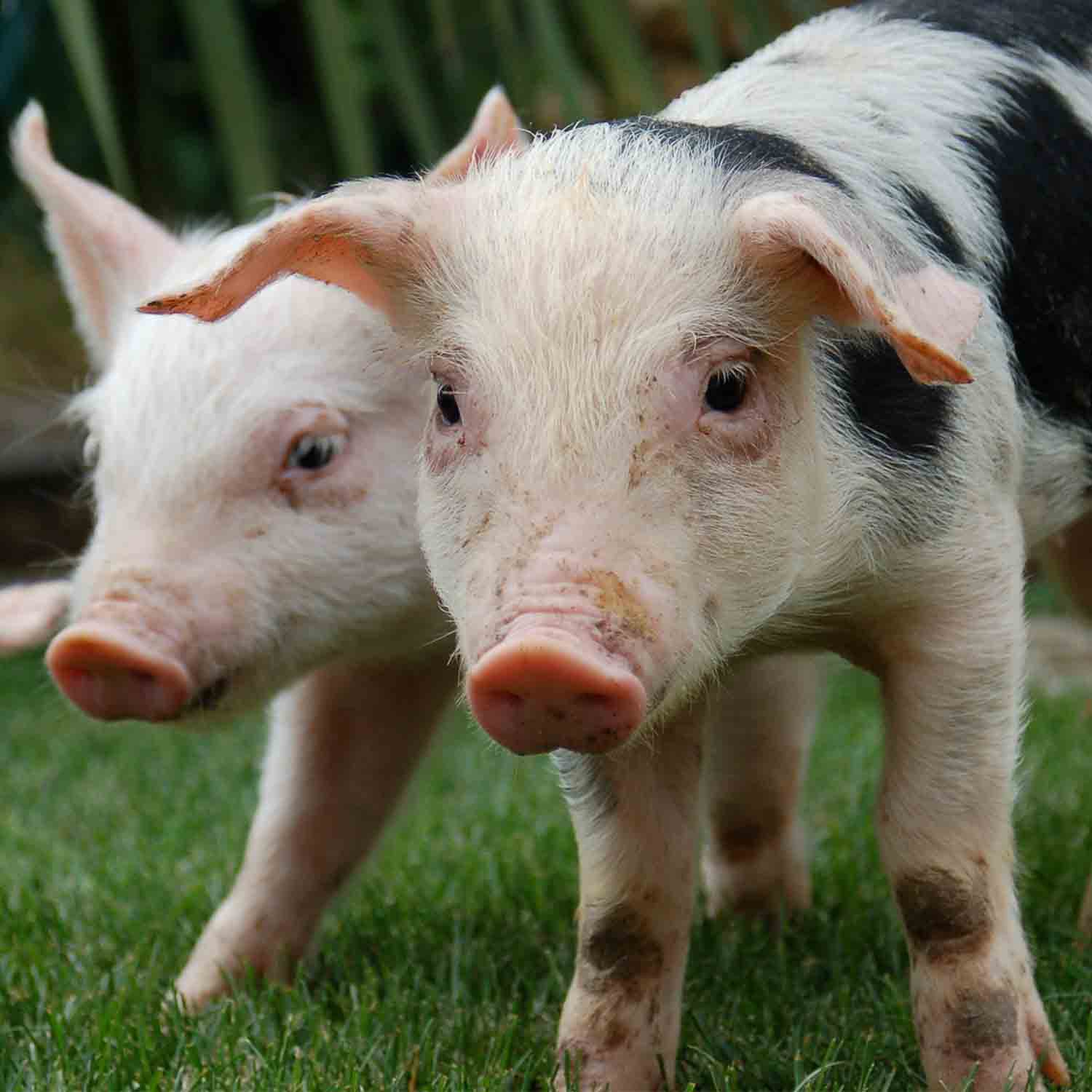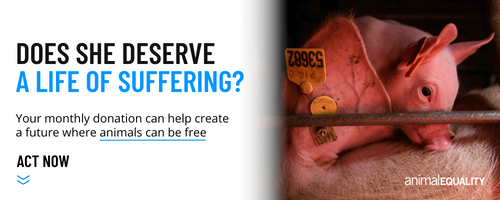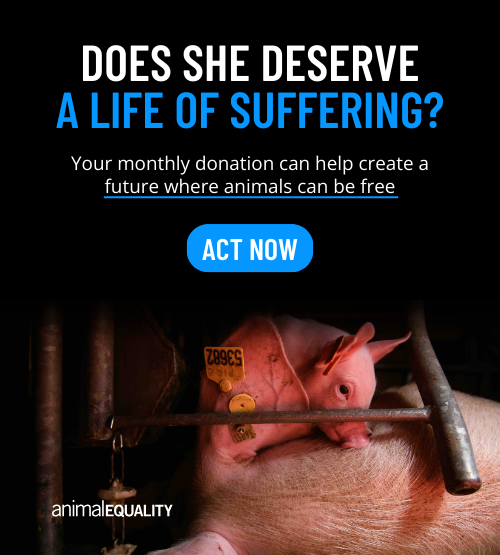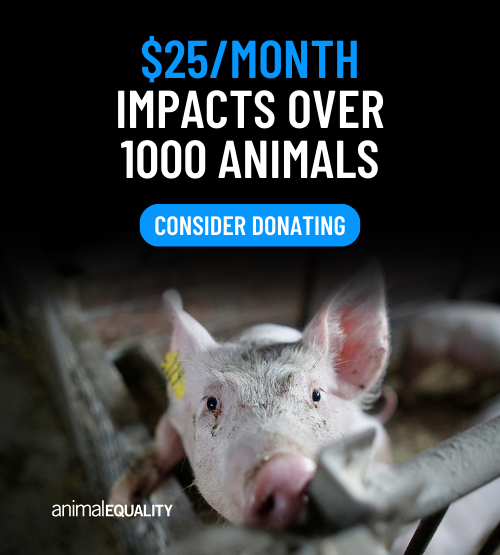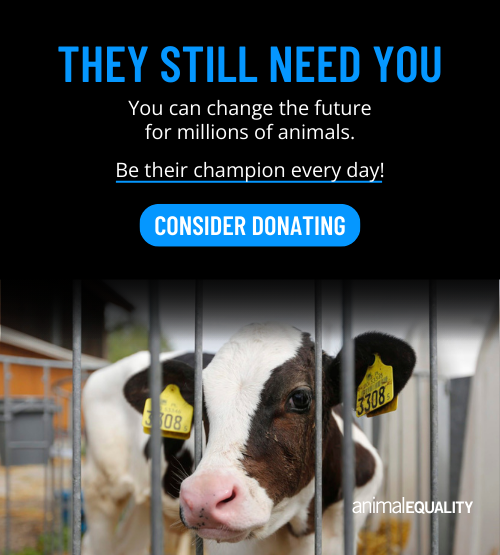Investigation: Chickens Suffer on Spanish Factory Farm
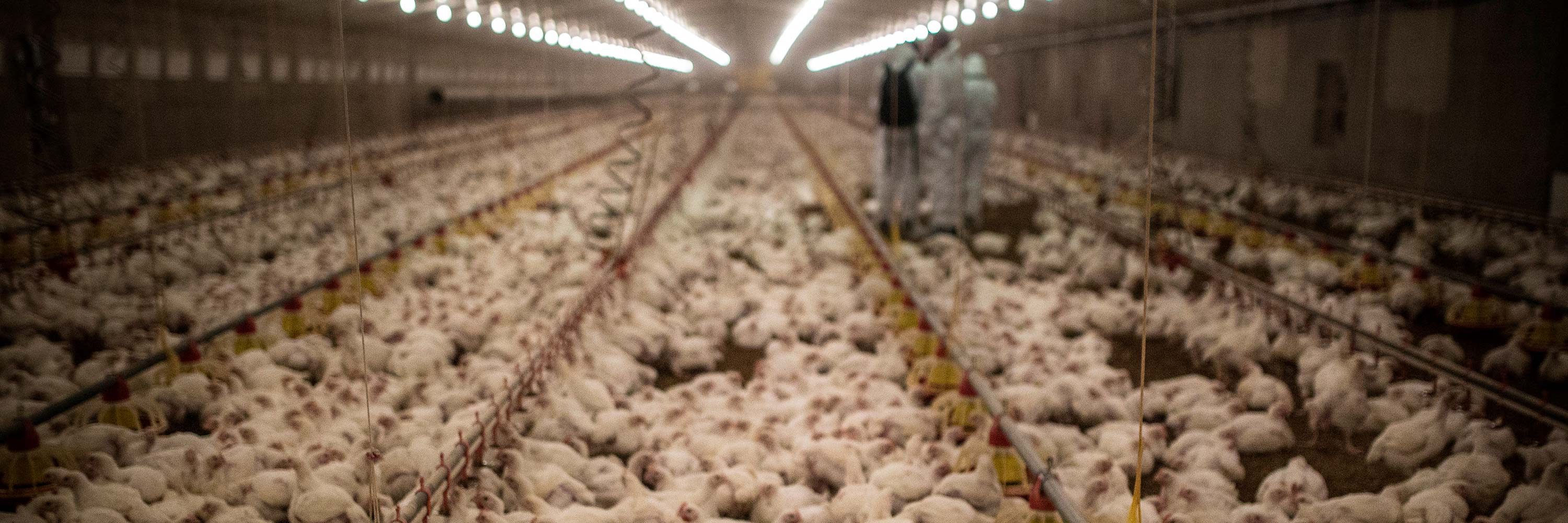
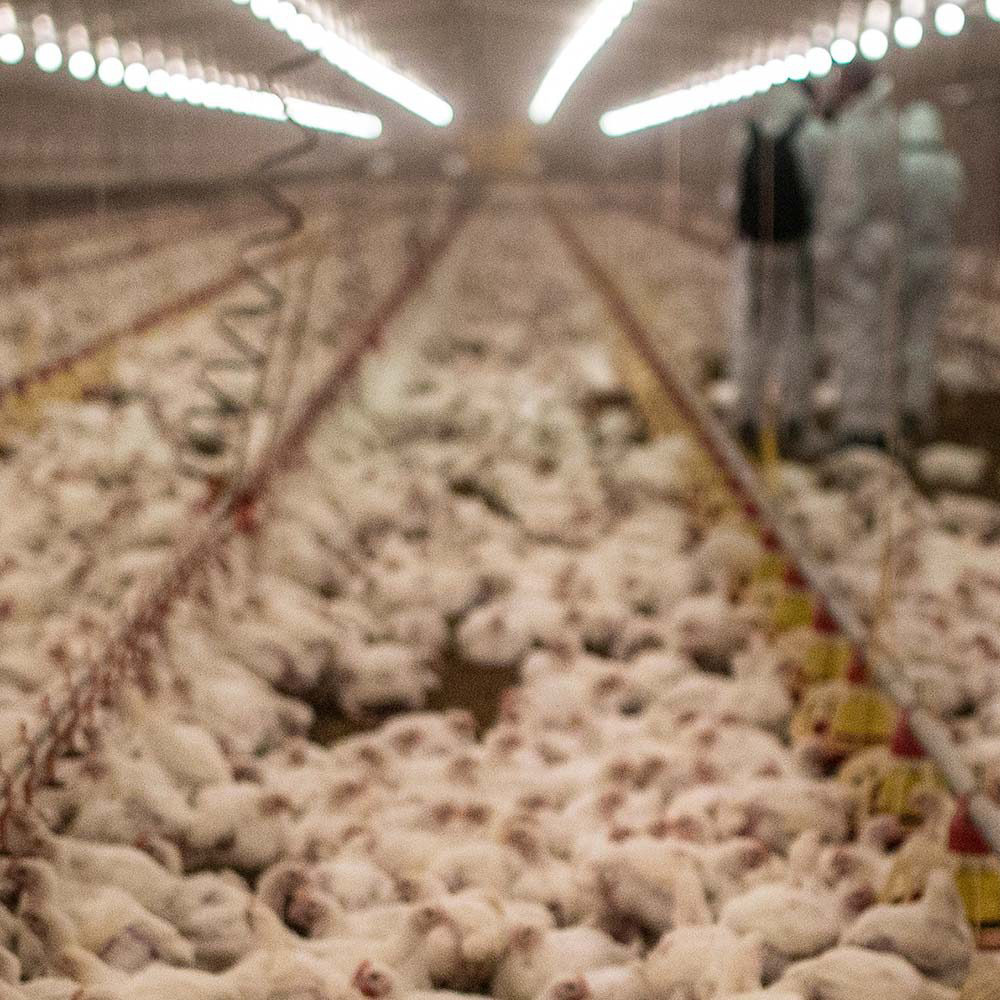
Animal Equality, along with Spanish online newspaper Público, has released an investigation into a factory farm in Spain that documents the cruelty of the environment and rapid growth that chickens suffer.
THE DETAILS: Our team in Spain visited the same farm during different life stages of the farm’s chickens, accompanied on the last day by Ana Pardo de Vera, Chief Editor at Público. During their final visit, the chickens were in the last days of growth before being sent to the slaughterhouse and we were able to record the effects of intensive industrial farming:
- Many of these animals could not stand because of the enormous size they have reached in only 30 days. Those that collapse cannot reach the feeders and end up dying of starvation.
- Most of the chickens had burnt stomachs because of the ammonia that comes out of the ground where their own feces accumulate and is never cleaned up.
- The animals live crowded together with almost no room to move around, and the air is unbreathable because of the high concentration of ammonia.
- Deplorable hygienic conditions have the chickens living alongside dead ones, with drinking troughs that were completely moldy.
UNNATURAL RAPID GROWTH: Our Investigators filmed the chickens approximately 10 days before they would be sent to a slaughterhouse, a fate that normally happens at around 42 days of age when the birds have not yet reached sexual maturity. Chickens raised for meat have been genetically selected to grow as fast as possible, and many of the diseases they suffer from are the result of this selection. Today, the growth rate of a chicken for meat production is 4 times higher than it was 70 years ago. If a human baby were to grow at the same rate; at two months old it would weigh about 661 pounds.
PANDEMIC RISK: Aside from the immense cruelty factory farms inflict on animals, these industrial farms also present the immediate threat of pandemic disease spread. Experts from the United Nations and the European Food Safety Agency (EFSA) point to animals and food of animal origin as the cause of novel diseases such as COVID-19. Their research concludes that industrial farming has caused most of the new infectious diseases in humans in the last decade and that there is a risk that animal farming could be the source of new pandemics, similar to what has already happened with live animal markets. Also, the Centers for Disease Control and Prevention estimates that 3 out of every 4 new or emerging infectious diseases in people come from animals.
In addition, it’s within the chicken industry that animal viruses have been found to mutate most often into a new and dangerous disease that could infect humans. It’s these new viruses, like COVID-19, that are the most deadly as there are not yet vaccines or immunity. For example, of the 16 strains of new influenza viruses currently identified by epidemiologists as “of particular concern,” 11 originate from the avian influenza virus (including H5N1).
ANTIBIOTIC RESISTANCE: Chickens raised for meat production are routinely given antibiotics as a preventative measure to stop them from getting sick. This is a widespread practice in industrial farming, but in Spain it is even more pronounced, with Spanish farms consuming five times more antibiotics than French farms and twice as much as Portuguese farms. Every year, 700 000 people in the world die from antibiotic-resistant infections, a figure that could rise to 10 million by 2050 if no action is taken to eliminate the use of preventative antibiotics, according to the World Health Organisation.
41 MILLION CHICKENS DIE BEFORE REACHING SLAUGHTER: In Spain, 1.9 million chickens are slaughtered every day, adding up to 695 million a year. According to data from the country’s Ministry of Agriculture, Fisheries and Food, more than 5% (41 million) died on farms in 2018 due to the terrible living conditions they endure, or roughly 112,000 a day.
WHAT COMES NEXT: Animal Equality in Europe is part of the European Chicken Commitment, an agreement to improve the living conditions of chickens. Together, we are trying to get companies to meet basic animal welfare criteria such as limiting overcrowding, meeting minimum light standards, adopting slower-growing breeds or having birds stunned with gas instead of being immersed in electrified water, as is currently the case. Our work extends from there to the rest of the world, with our teams in the US, India and Mexico and Brazil also efforting every day to improve the lives of chickens and all farmed animals currently living in cruel and abusive conditions. You can help by sharing out these important investigations with your friends and family, and choosing plant-based over animal products. Together, we will create a world where all animals are protected and respected.
LEARN MORE ABOUT THIS IMPORTANT ISSUE

